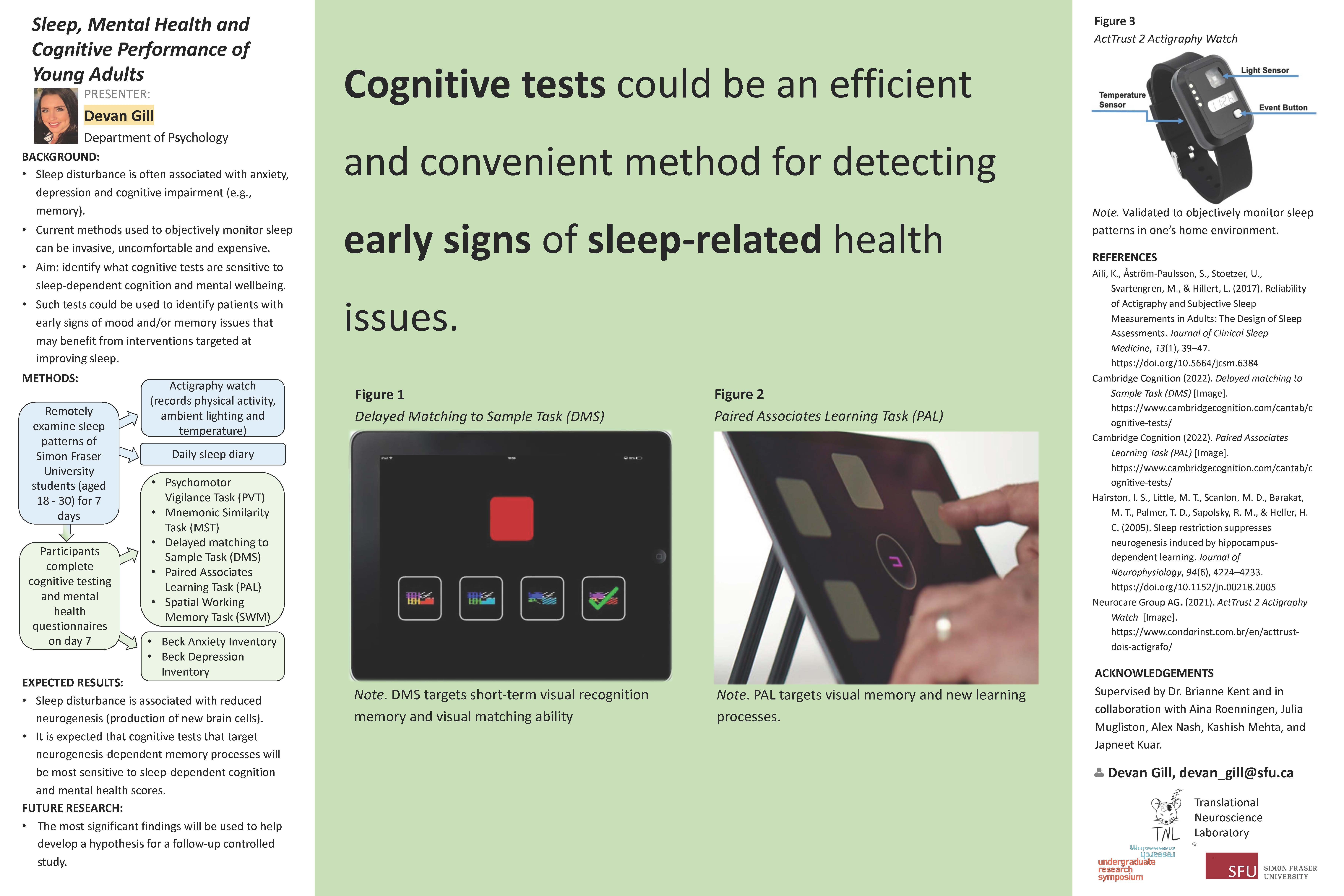Sleep, Mental Health and Cognitive Performance of Young Adults
Main Article Content
Abstract
Sleep disturbance may be an early sign for more serious mental health issues and early detection and intervention could prevent prodromal symptoms of disorders from manifesting. The current study aims to identify what cognitive tests are sensitive to sleep-dependent cognition. The study will also examine if scores on mental health assessments are associated with sleep measures to further understand the associations between sleep, mental health and cognitive performance. Undergraduate university students (18 to 30 years of age) will complete seven days of remote sleep monitoring using an actigraphy watch and daily sleep diary methods. They will then return to the lab on day seven to complete cognitive testing and mental health questionnaires. This is an exploratory pilot study, which will inform future experimental designs. A correlation matrix will be used to examine the relationships between sleep quality and quantity (total sleep time, sleep onset latency, sleep efficiency, sleep waking and wake after sleep onset), depressive and anxiety symptoms and scores on cognitive tests. Cognitive tests that specifically target processes that depend on neurogenesis (the production of new brain cells) are predicted to be uniquely sensitive to sleep disturbance due to the associations between sleep disturbance and reduced neurogenesis. If cognitive tests that are sensitive to sleep-dependent cognition are found, then they could be used in clinical settings to identify patients with sleep disturbance who may benefit from sleep interventions.
Faculty Supervisor: Dr. Brianne Kent, Department of Psychology, Simon Fraser University
Article Details

This work is licensed under a Creative Commons Attribution-NonCommercial-NoDerivatives 4.0 International License.

